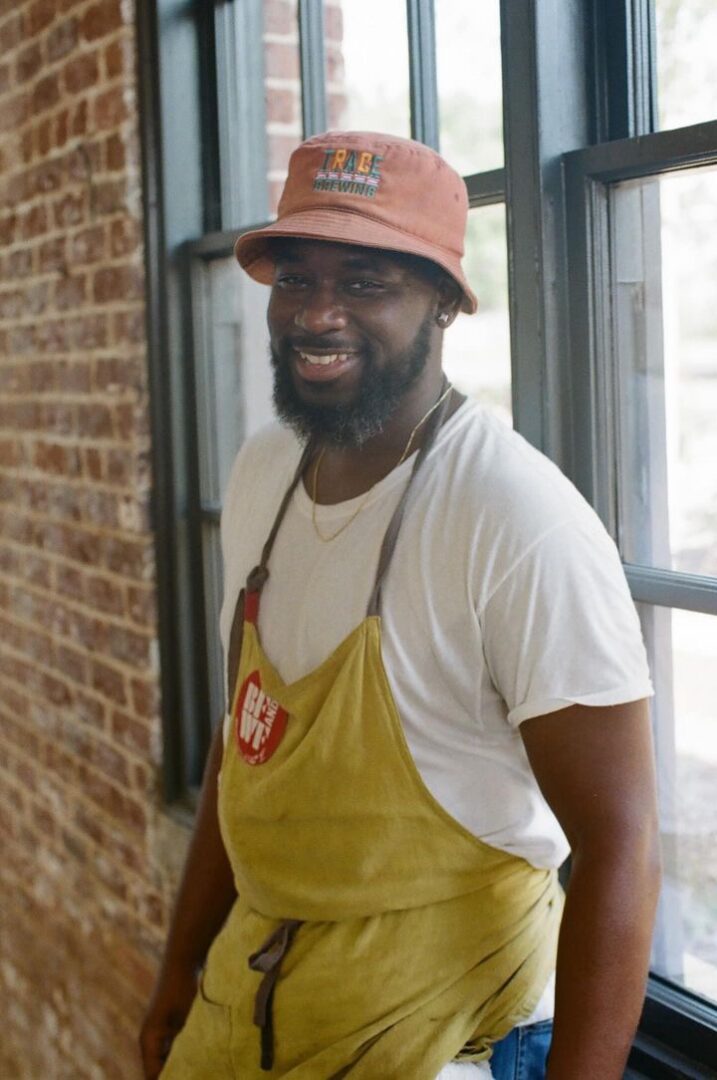We recently connected with James Henry and have shared our conversation below.
James , thank you so much for taking the time to share your lessons learned with us and we’re sure your wisdom will help many. So, one question that comes up often and that we’re hoping you can shed some light on is keeping creativity alive over long stretches – how do you keep your creativity alive?
“Staying creative in the kitchen is all about staying true to yourself, and remembering why you became a chef in the first place. For me, my creativity comes from the freedom to express who I am—whether that’s through the ingredients I choose, the techniques I use, or the stories I tell with my food. My favorite quote is ‘Your ART is your ART.’ It means whatever you create, however you express it, is valid. Your art doesn’t have to look like anyone else’s, because your story, your experience, and your background are unique.
As young chefs, we’re often told to follow trends, but I believe true creativity is about embracing what makes you different. So, I tell every young chef to find their voice in the kitchen—whether it’s honoring your roots, experimenting with flavors that inspire you, or exploring new cultures through food. You have to give yourself permission to evolve and learn, but also to fail and rise again. Each mistake is just part of the process of building something greater.
And remember: creativity is about community. The reason I became a chef was to build community around food and embrace culture. Food connects us. So don’t be afraid to share your journey with others, and don’t hold back from mentoring or lifting up the next generation. When we share our knowledge and our art, we help inspire others to do the same. Keep pushing, keep creating, and keep sharing—because your art has the power to change the world, or at least the world I live in”
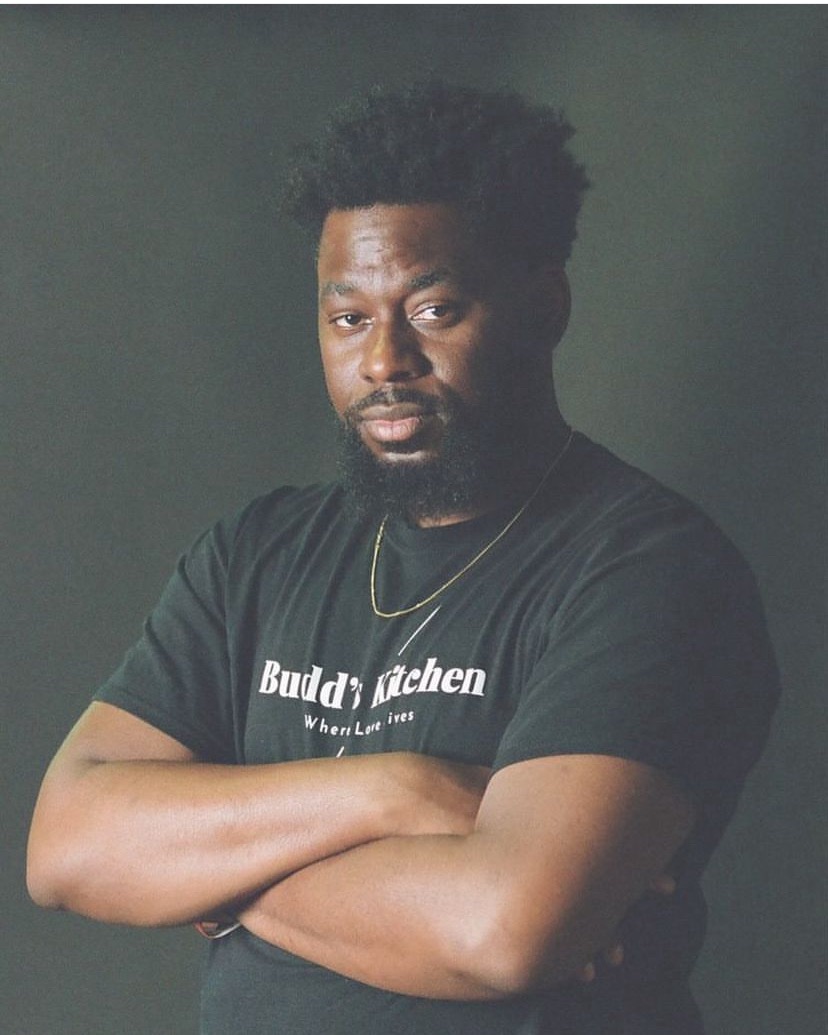
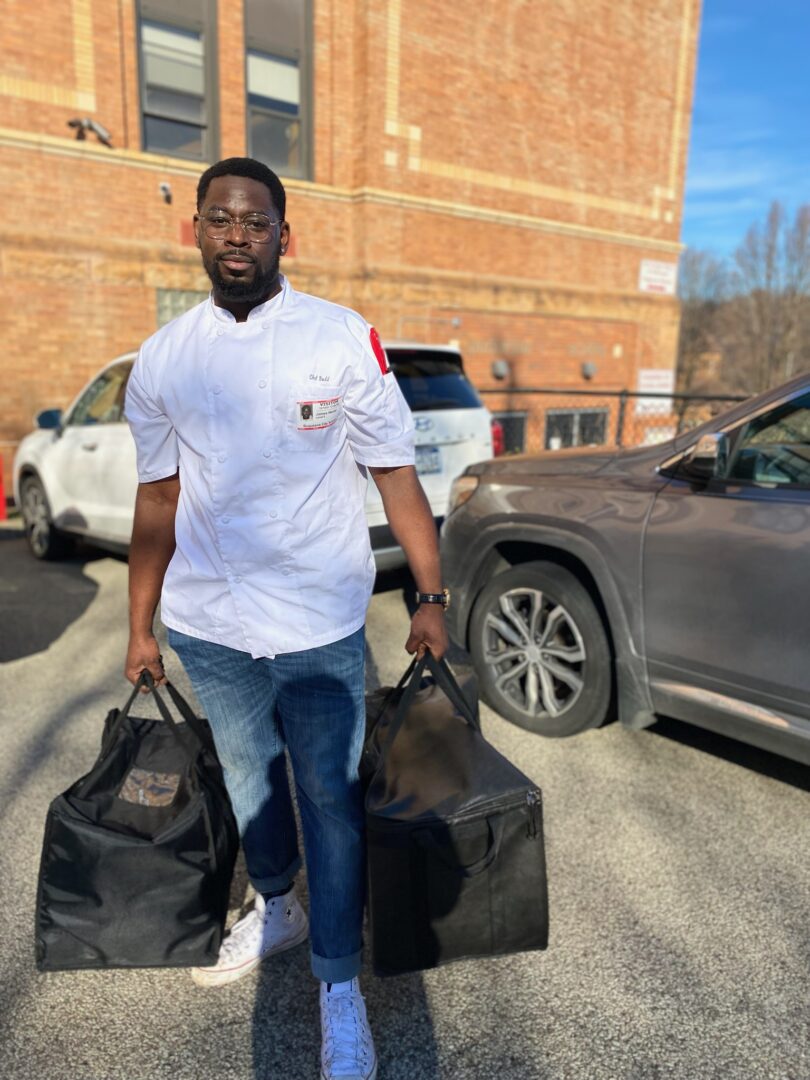
Appreciate the insights and wisdom. Before we dig deeper and ask you about the skills that matter and more, maybe you can tell our readers about yourself?
My name is James, but most people know me as Chef Budd. I’m a private chef with a passion for creating custom menus that are designed to bring my clients joy. The focus of my work is not just on great food, but on crafting experiences. I work closely with my clients to understand their personal tastes and preferences, and I always start with a 40-minute consultation where I ask a series of specific questions about what they love—and what they don’t. From there, I create a menu that’s tailored to their unique needs and the theme of their event.
In addition to private events, I also host pop-up dinners and events across the country. My journey into the pop-up world began in Pittsburgh, PA, where I was lucky enough to team up with some amazing people, including @Everybodyeats412 and @TraceBrewing, who introduced me to the pop-up scene. Through their support, I had the opportunity to share my food with so many people, and that’s where I found the most excitement—seeing how food, at its best, creates community.
One of the things I love most about what I do is the way food sparks conversation and connection. I’ve had guests at my pop-ups share stories with me about how a dish reminded them of their grandma’s potatoes, or how a certain flavor took them back to a specific moment in time. For me, that’s the magic of food—it’s about more than just eating, it’s about creating memories and building relationships. When you serve food that resonates with people on that deep emotional level, that’s when you know you’ve made an impact.
Great food does more than just fill the stomach—it brings people together, it tells stories, and it helps us all connect on a level we all understand. It’s such a powerful way to form bonds, bridge gaps, and keep traditions alive, and that’s what I aim to do with every meal I create. For me, it’s always about building community and celebrating the shared experience of food.
Alongside my work as a private chef and my pop-up events, I’m also excited to introduce something else I’ve been working on—my very own spice line. It’s been a labor of love, and I’m proud to say it’s already making waves with my clients and customers. The two signature seasonings in my line are the Cajun Coffee Rub and Citrus Herb Blend. Both of these blends are versatile and meant to elevate the flavors of different types of meat, with each one bringing its own unique twist.
The Cajun Coffee Rub is my top seller, and for good reason. It’s a bold, smoky seasoning with just the right balance of spice and depth, thanks to the addition of coffee. Coffee in the seasoning isn’t just for flavor—it really enhances beef, bringing out the natural umami in the meat, while the smokiness adds a richness that’s perfect for grilling or smoking. I actually use it as an all-purpose seasoning, and the feedback I’ve gotten from my clients has been incredible. They love that it’s low in sodium, which gives them the freedom to adjust their salt levels to taste, making it a healthier option without compromising on flavor.
The Citrus Herb Blend is another personal favorite, especially for lighter proteins like poultry and seafood. It’s refreshing with a zesty citrus punch, complemented by a beautiful herb mix that works perfectly on grilled chicken, shrimp, or even fish. It’s the kind of seasoning that elevates the dish without overpowering the natural flavors of the ingredients.
Both of these seasonings are crafted to do one thing: make great food even better. Whether you’re grilling at home, smoking meats, or just looking to add some flavor to your dishes, these seasonings are designed to be easy to use and absolutely delicious. I’m really excited to share them with everyone, and to continue growing my brand in ways that bring people together over good food—just like I always aim to do.
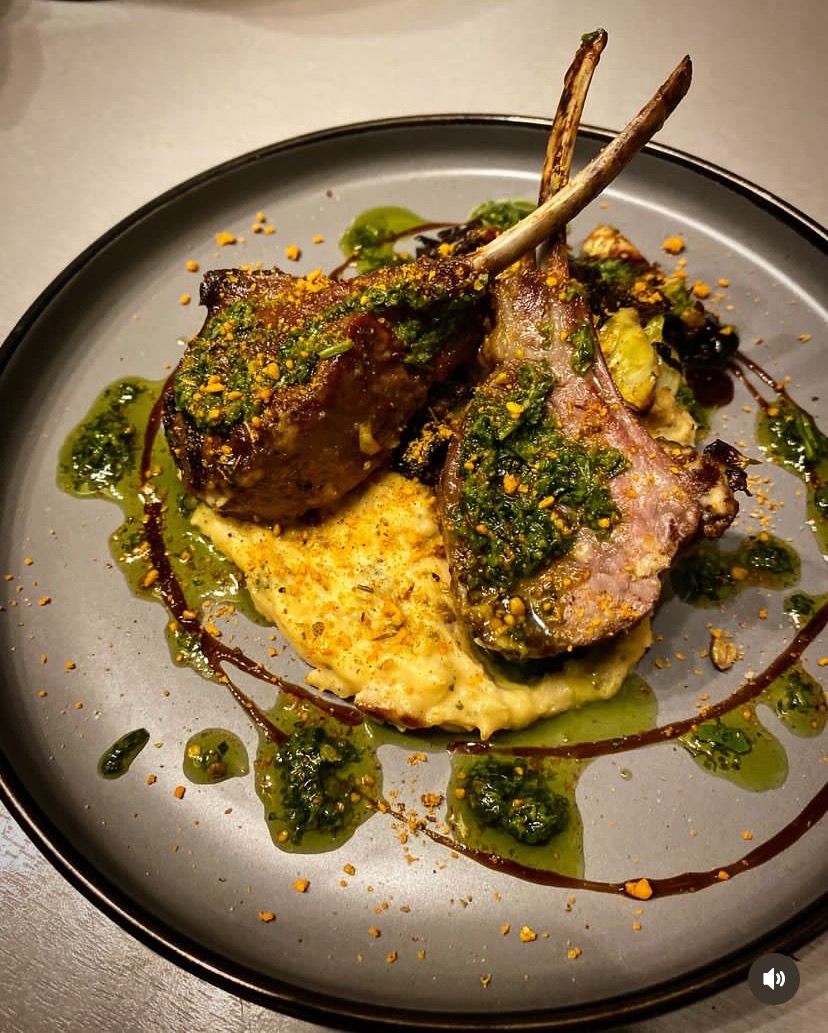
Looking back, what do you think were the three qualities, skills, or areas of knowledge that were most impactful in your journey? What advice do you have for folks who are early in their journey in terms of how they can best develop or improve on these?
The first one is definitely the ability to take criticism. This industry is tough, and you’re going to face your share of critiques, whether it’s from a customer, a mentor, or even from yourself. But the key is to take that criticism for what it is—not as an attack, but as a tool for growth. If your dish doesn’t cut it, you’re going to know, but that’s not a reason to quit. If someone takes the time to tell you how you can improve, it means they care. That’s valuable information, and it helps you refine your craft. So, my advice for anyone starting out is to get comfortable with feedback, take it with grace, and use it to push yourself forward. People who don’t care won’t say anything at all, so when you get that critique, take it as a sign you’re on the right path.
The second skill is attention to detail. Whether you’re working in a fast-paced kitchen or curating a custom menu for a client, the little things matter. It’s the balance of seasoning, the timing, the presentation—those small elements that elevate a dish from good to great. In my journey, I’ve learned that a perfect plate isn’t just about making food taste great; it’s about giving that extra effort to make it visually stunning, perfectly seasoned, and thoughtfully crafted. For young chefs, I would say: Don’t rush through your prep. Focus on honing your skills with precision. The more you practice the basics—knife skills, seasoning techniques, plating—the more you’ll set yourself up for success.
The third quality is vision and perseverance. For me, I always believed that dreams are real, and I can’t overstate how important that mindset has been for me. I’m not just talking about daydreaming—I’m talking about locking in on your goal and pursuing it with everything you’ve got, even when the path gets tough. I’ve faced plenty of obstacles along the way, but I stayed focused on the vision of what I wanted to create. The noise from outside distractions, negativity, or self-doubt can be loud, but you’ve got to tune that out and go after your goals like a bat out of hell. That’s the kind of determination it takes to push through in this industry.
My advice to young chefs is: Believe in your vision and know that it’s possible. If you can see it in your mind, you’re already halfway there. The other half is grinding, staying true to your craft, and never letting go of that dream. Be willing to work hard, fail, get back up, and keep pushing forward. Dreams don’t just come true because you want them to—they come true because you’re willing to do the work to make them happen.
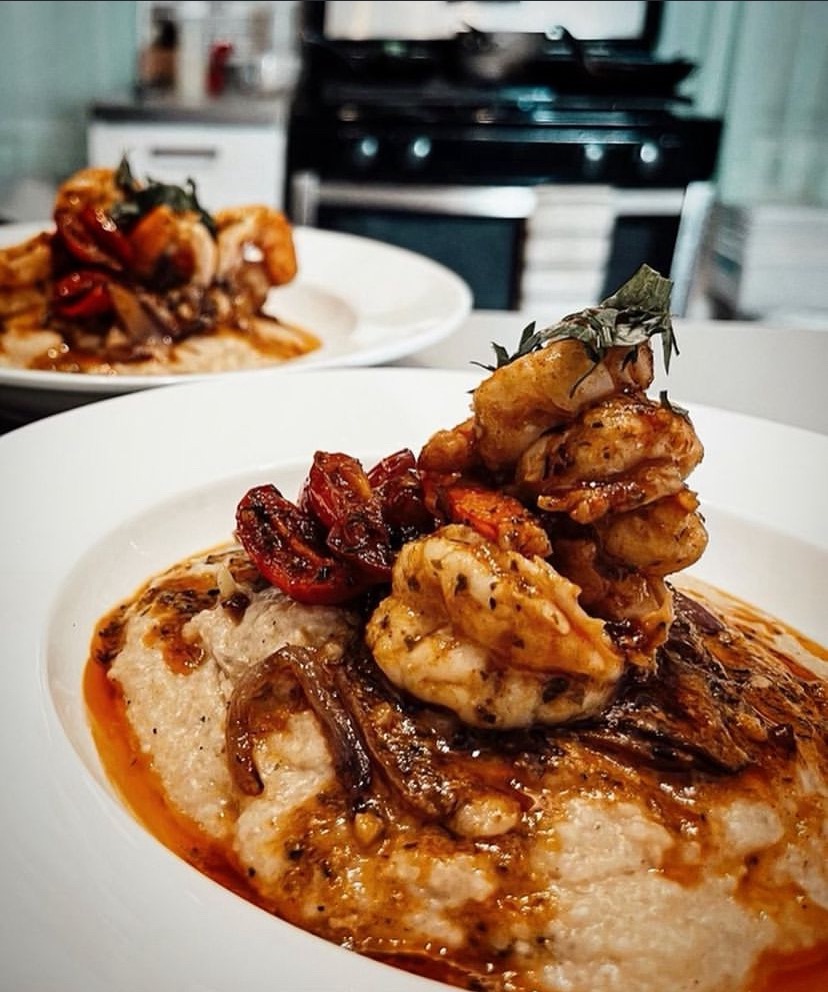
Is there a particular challenge you are currently facing?
The biggest challenge I’m currently facing is imposter syndrome. For those who may not be familiar with the term, imposter syndrome is that feeling of not being good enough or that you don’t deserve your success, even when everything around you says otherwise. It’s that voice in your head telling you you’re a fraud or that you’re just ‘lucky’ to be where you are, and sooner or later someone will realize you don’t belong. It’s something a lot of people deal with, and I’m no exception.
For me, it’s been especially difficult because I’ve gone from watching my idols on TV, to cooking alongside them at major festivals like the Bayhaven Food and Wine Festival, and even having the privilege to assist at some of their James Beard dinners. To go from seeing these chefs as larger-than-life figures to collaborating with them, and being mentored by them—that’s a dream come true. But it also messes with your head. You think, ‘How did I get here? Am I really worthy of this space?’ The growth has been fast and massive. One day you’re on the sidelines, and the next you’re stepping into these high-level kitchens and being trusted to contribute in significant ways.
Sometimes I have to remind myself that if I didn’t deserve to be in those rooms, I wouldn’t be there. There’s a reason I’ve been invited to these spaces, and it’s not just luck—it’s because of the work I’ve put in, the skills I’ve developed, and the value I bring. The people I look up to don’t see me as an imposter. They see someone who’s committed to their craft, someone who’s driven and passionate. And being around them has helped me realize that I am worthy of these opportunities, even if I’m still working on embracing them.
The biggest lesson I’ve learned is to stop talking myself out of my dreams. It’s easy to feel like you don’t belong when you step into a new space, but you’ve got to remember, the same qualities that got you there are the ones that will keep you there. So when I get the chance to be in those rooms, I remind myself: be myself. There’s no space for anyone other than the ‘you’ that got you there in the first place. The key is to believe in your own abilities, embrace the opportunity, and trust that you’ve earned your place at the table.
My advice to anyone dealing with imposter syndrome—especially young chefs starting out—is: don’t be afraid to take risks, and when you get to those big opportunities, embrace them with confidence. Know that you deserve to be heard, seen, and celebrated for what you bring to the table. Believe in yourself and the journey you’re on. You’re in those spaces for a reason, and sometimes just accepting that is the first step toward truly owning your success.
Contact Info:
- Website: https://buddskitchen.com
- Instagram: chefjb81
- Facebook: Budd’s Kitchen
- Youtube: Coming soon!
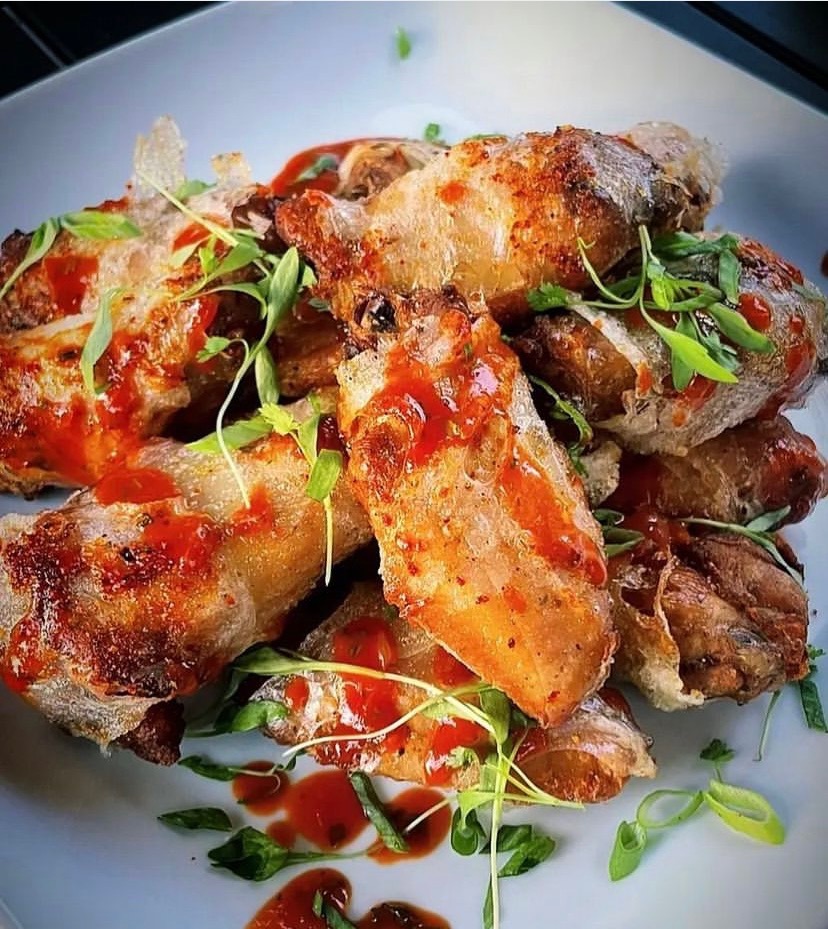
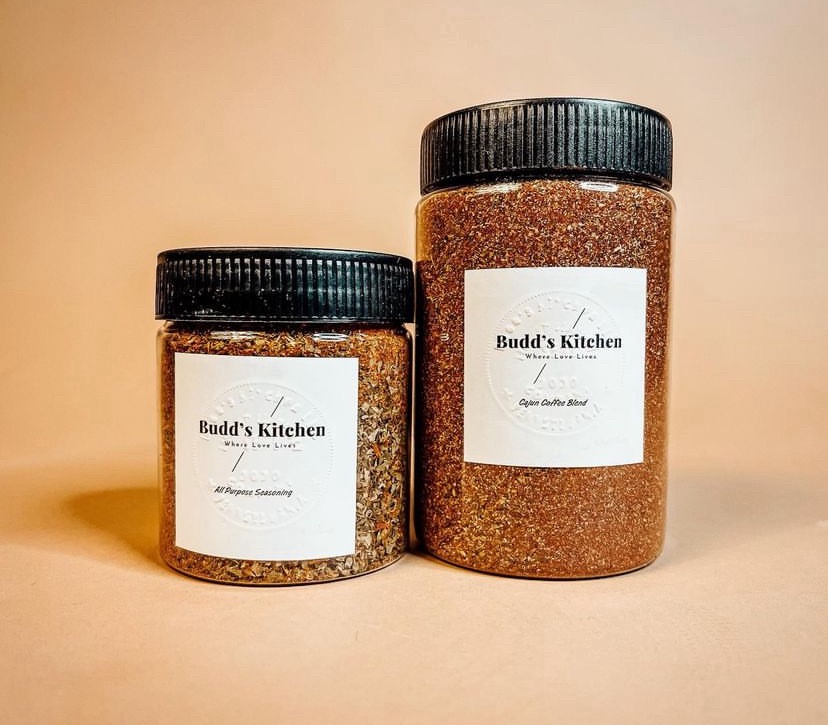
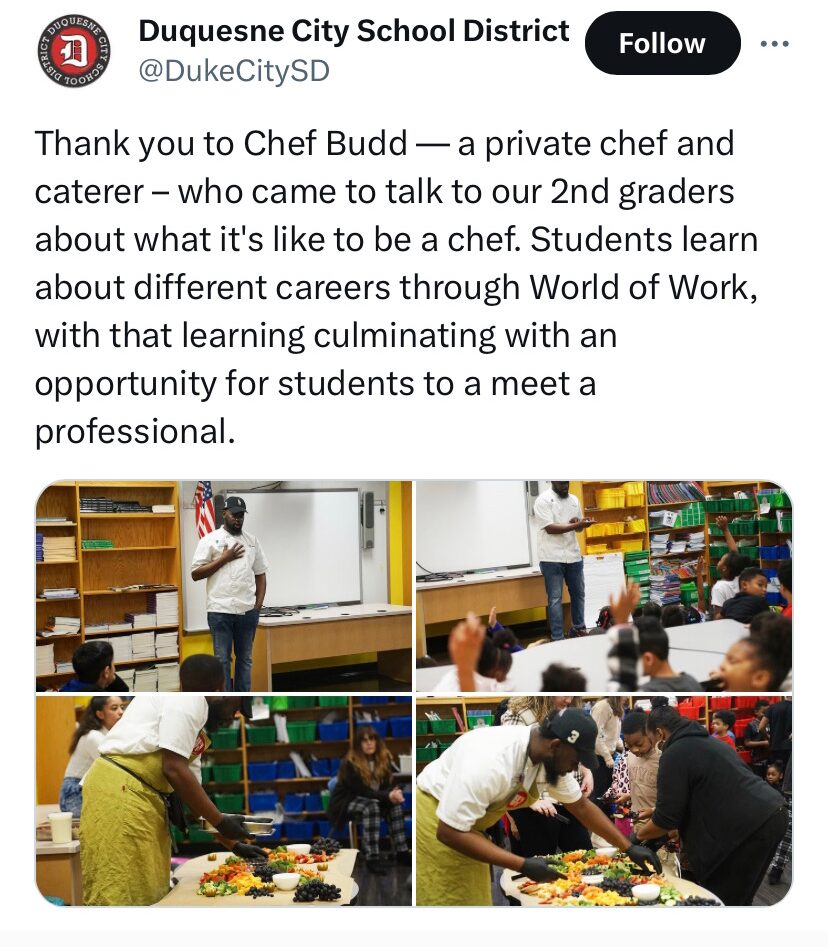
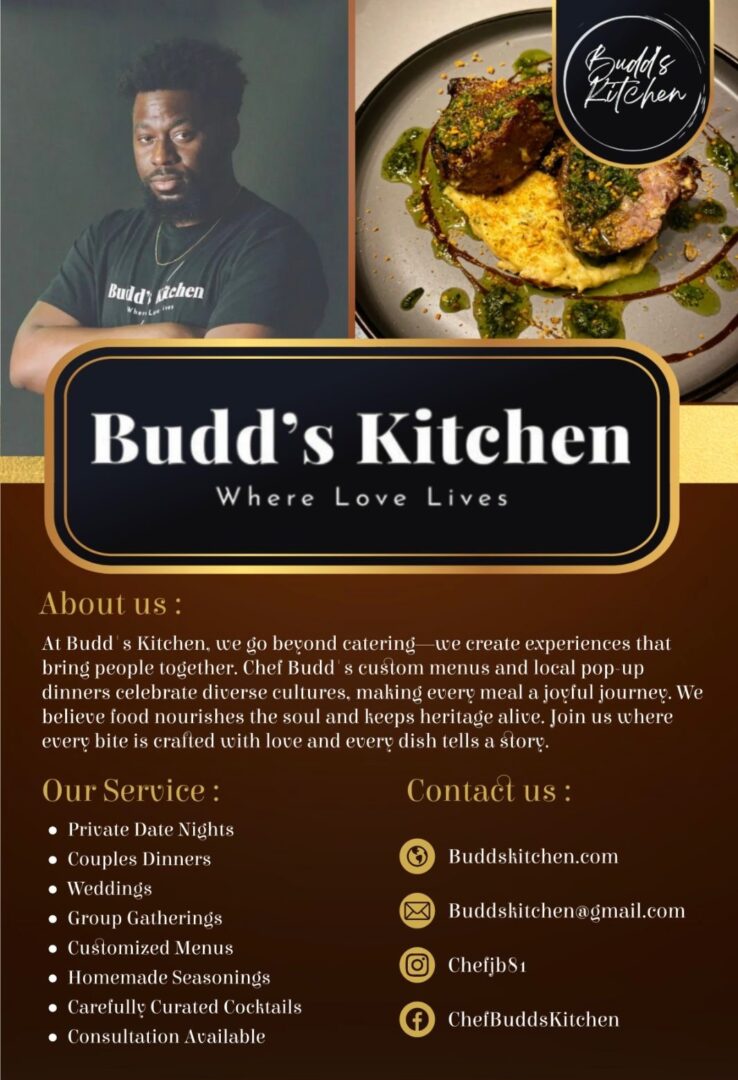
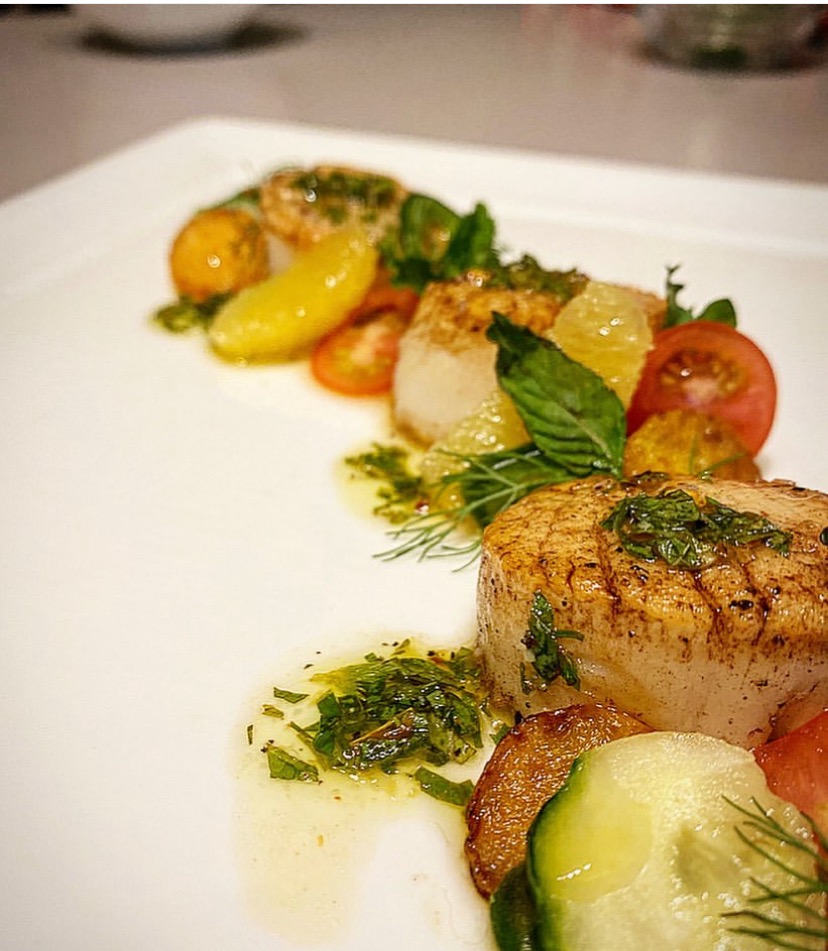
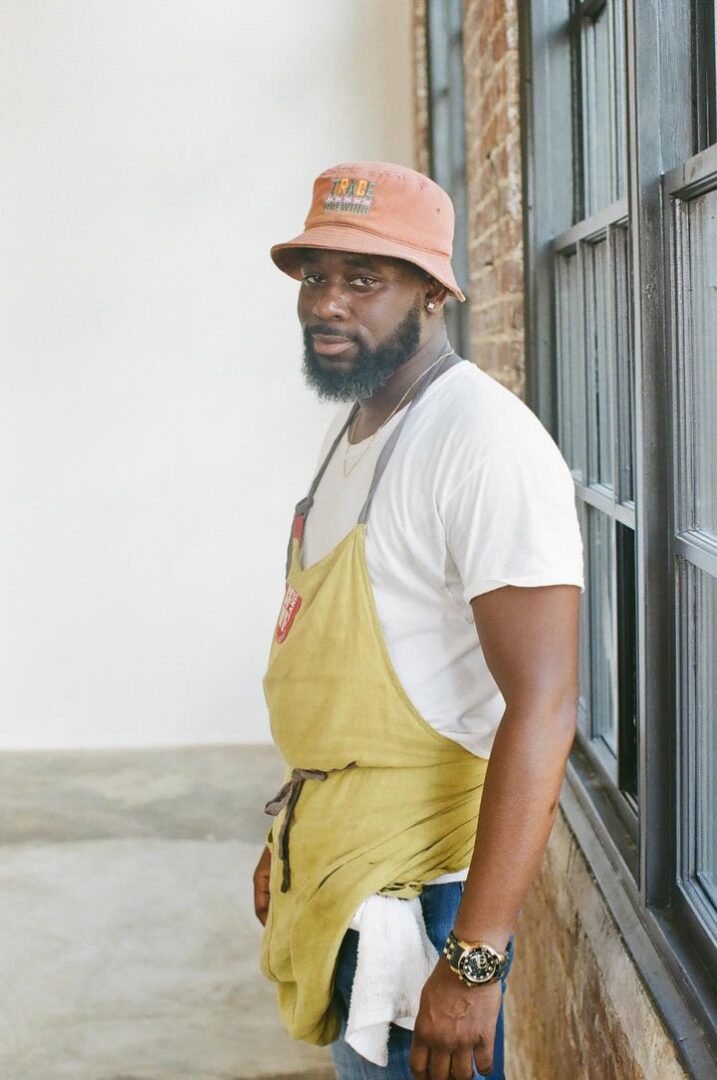
Image Credits
Clay Williams, Julie Kahlbaugh, Rob Jeezz
so if you or someone you know deserves recognition please let us know here.

